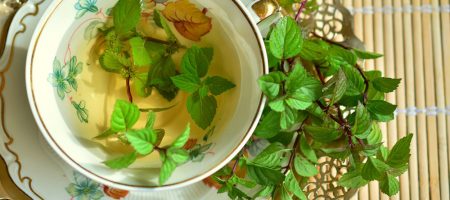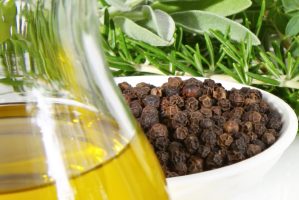Organic living – Lemongrass benefits / Stay Healthy!
Fresh Lemon Grass
Native of Sri Lanka and India,
(Cymbopogon citratus)
All natural affordable home remedies using lemongrass
General uses of Lemongrass
relieve spasms, muscle cramps, rheumatism
Cough, cold & sore throats
fever reducer
Anxiety
Headaches
High cholesterol
Type 2 diabetes
Colitis
Digestion
Rough, dry, scaly skin
Acne
Constipation
Kidney detoxification
Insomnia
Relaxation & deep sleep
natural and free of allergens.
Strong antioxidants
Description
grass like plant with razor-like blades
a tall tropical plant with a powerful lemon fragrance,
widely used as a cooking herb of Thailand, Vietnam and other Southeast Asian countries.
Its bright lemony scent is used in drinks, curries and soups.
It is delicious in tea with cloves.
rich in vitamin A good for ” eyes and clear skin.”
fast growing perennial, which means once you plant it, the grass comes back year after year.
grow in dense clumps
3 to 6 feet tall and 3 feet wide.
The leaves are bright yellow-green and release a lemon aroma when crushed.
best known for putting the lemony zip in cuisine.
easy to make and not expensive
smells like lemon, but it is more mild and sweet in flavor not sour to taste.
effective and non-toxic insect repellent.
Cats love it too
Planting
Pot Size 10 to 16 inches wide.
Seed Spacing Sprinkle lemon grass seeds on top of the soil, barely covering with compost.
Seed Germination 21 to 40 days. Need a warm area to germinate.
Plant Spacing Lemon Grass plants should be spaced about 3 feet apart.
Water Requirements Water regularly, keeping the soil moist like a damp sponge, but not soggy.
Soil Requirements Well-drained soil that is slightly acidic.
Sun Requirements full sun or light shade. at least 6 hours of sun daily.
Uses
To make tea, just trim the plant, rather than cutting it to the base as it done in cooking. Lemon grass is surprisingly strong so it doesn’t take a large amount to make a pot of tea. Lemon grass herb is believed to be a mild sedative. Drink a big cup of strong lemon grass tea and you will be ready for a nap.
Slices of fresh stalks are added to soups, salads and seafood dishes. You can also use the tender, inner leaves and sauté stir fry, or use in sauces. The tough top part of the stalk can be bundled and added to soups or stocks, removing before serving.
Culinary Uses
This is a very pungent herb and is normally used in small amounts.
The entire stalk of the grass can be used.
The grass blade can be sliced very fine and added to soups.
The bulb can be bruised and minced for use in a variety of recipes.
Lemongrass blends well with coconut, peppermint, ginger, shallots, garlic, chilies, and cilantro and chilli pepper.
Buy And Store
Lemon grass is available in ethnic markets such as Asian and Mexican. Select fresh looking stalks that don’t look dry or brittle. Store fresh lemon grass in the refrigerator in a tightly sealed plastic bag for up to 3 weeks. You can also freeze it for about 6 months without any flavor loss.
Choose a healthy fresh plant with plump stalks. Cut off several inches from the top of the stalks. Peel off any outside layers that are dry or withered, especially near the base of the stalks. Fill a glass jar with water and place the stalks. Keep them with the bottoms in the water for several weeks. Roots should begin emerging from the base in 1 to 2 weeks.
Once the roots are between 1 and 2 inches long, transplant them into a container. The roots and crown (the base of the stalk) should to be covered by soil. Make sure your container has plenty of drainage holes to allow the water to drain from the plant.
Lemongrass herb should be kept in an air tight container and placed in a dark, cool and dry place where it will keep for up to 2 years
Lemon grass is also used commercially as the lemon scent in many products including soaps, perfumes and candles. A related plant, (Cymbopogon nardus) is the ingredient in citronella candles sold to ward off mosquitoes and other insects.
Medicinal And Other Uses
CANCER FIGHTER
Last year researchers made a discovery that the lemon aroma in herbs like lemon grass kills cancer cells in vitro, while leaving healthy cells unharmed. A drink with as little as one gram of lemon grass contains enough citral to signal the cancer cells to commit suicide.
The University of TokuShima School of Medicine conducted a study that was published in the Oxford University Press about the effectiveness of lemongrass on cancer. They concluded that lemongrass contains citral, a substance which causes apoptosis that makes cancer cells want to kill each other. There is no harm in this discovery since citral doesn’t harm the healthy cells at all. Another benefit is how it can treat diseases like keratomycosi. It is a condition where it causes an inflammation in the cornea that could result to vision blur.
Lemon grass tea is also an excellent detoxifying agent. It eliminates the harmful elements in the body such as uric acids, contaminants and bad cholesterol. It also improves the blood circulation as well as the digestive system and.
great for people who suffer from skin blemishes and acne. You can easily boil lemon grass to create tea. Once cooled it can be applied to the skin and acts as a toner which improves the skin by clearing away stubborn pimples.
Also lemongrass tea benefits those who are suffering from high blood pressure. It naturally contains minerals and vitamins that can lower high blood pressure safely.
Drinking lemongrass tea every day is also good for people who have insomnia. It has a calming component which naturally relaxes the body’s muscles and nerves. It is also advised for people who have anxiety, depression and those who are prone to stress, just the aroma alone can bring about these positive benefits.
Aside from the benefits of lemongrass tea, it is also important to know its limitations and that certain people should not use it. For example, lemongrass tea is not advised for pregnant women since it has a uterine and menstrual stimulating components that can be dangerous for fetal development and may contribute to a miscarriage. It is also not advised to consume any lemongrass products while breast feeding as the effects on the newborn are not yet known.
If you are in any doubt about whether you should be drinking lemongrass tea or not, consult your doctor for further advice.
Healing Properties and Benefits of Lemongrass
contains many anti-oxidant minerals and vitamins such as vitamin C, vitamin A, potassium, zinc, calcium, iron, manganese, copper, and magnesium.
effective weight loss agents help flush toxins and waste out of the body; improving the function of many different organs including the liver, spleen and kidneys.
It helps treat many nervous disorders such as nervousness, shaking hands or limbs, vertigo, Alzheimer’s disease, and Parkinson’s disease.
Lemongrass room spray
You’ll need:
Spray bottle
2 tablespoons of vodka or witch hazel
6-8 drops of lemongrass
Distilled water
Pour vodka/witch hazel and lemongrass into the bottle and top off the bottle with distilled water. Shake well before each use. Use often to bring a smile to your face!
Make your own bug spray.
You’ll need:
Spray bottle
Distilled water
10-12 drops of lemongrass
Add lemongrass to the bottle and top off with distilled water. Spray liberally all over your body before going outside. You can also add lavender essential oil for extra protection (and a more yummy smell!).
How to Eat Lemon Grass
The outer leaves of lemon grass can cut your hand, especially when harvesting. Wear sturdy garden gloves when harvesting and stripping the leaves to avoid injury.
Harvest a stem from the outside of the plant if you are using your own lemon grass. Cut the stem off with a sharp knife, level with the top of the soil. For purchased lemon grass, cut off the roots if they are still attached.
Peel off the outer layer of the grass stalk, as it is woody and tough. Trim off the thin, leafy part on the top of the stalk.
Mash the stalk using a mortar and pestle. Add the crushed lemon grass pulp to recipes that call for the herb.
Simmer whole stalks in water for 30 minutes, or until they are tender. Slice the stalks into 1/4-inch disks. Add these to soups, stews or other recipes that call for sliced lemon grass.
[border]
Resources:
http://mightyherbs.blogspot.com/2009/11/growing-lemon-grass-indoors.html
http://www.ehow.com/how_6039914_eat-lemon-grass.html
http://www.lemongrassteahq.com/lemongrass-tea-benefits
http://planetwell.com/lemongrass-health-benefits-and-healing-properties
http://www.gourmetsleuth.com/Articles/Exotic-Herbs-Spices-and-Salts-639/lemon-grass.aspx





